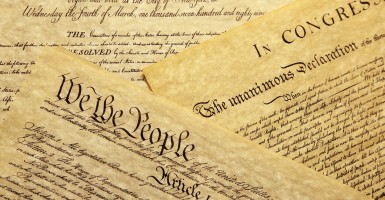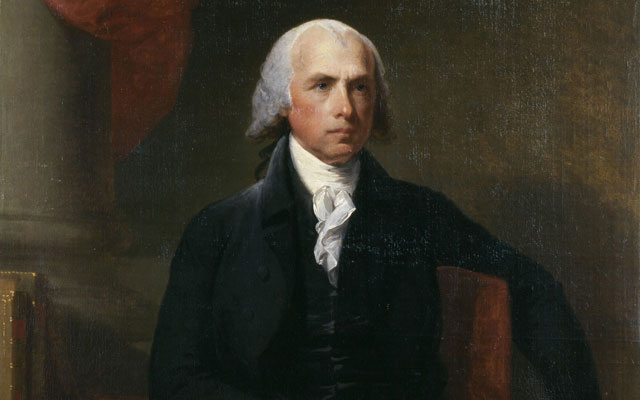Today, the Constitution turns 227 years old. To “celebrate” the occasion, Senate Majority Leader Harry Reid, D-Nev, tried to gut the First Amendment.
Last week, he and other Senate Democrats proposed an amendment, related to electoral fundraising and spending, that would have considerably restricted the free speech rights of Americans.
Thankfully, the proposed amendment did not even make it out of the Senate. Unfortunately, the pernicious logic behind it has become a staple of liberal discourse and will continue to threaten one of the cornerstones of our constitutional order.
>>> Read The Heritage Guide to the Constitution
We may all be equal at the ballot box, advocates of speech restrictions say, but the rich use their wealth to obtain outsized political influence. Billionaires and corporations are buying elections by flooding the airwaves with their ads. Legislators are then beholden to those who helped put them into office. We must act, they argue, not to restrict speech, but to save democracy itself.
Those who want to limit free speech in the public square are in effect saying that the American people can only deliberate about political issues with governmental supervision.
To address the problem, the proposed amendment would have allowed Congress and the states to regulate how money was raised and spent “by candidates and others to influence elections.” By this standard, nearly any issue advocacy could be construed as trying to “influence elections.” Both the state and federal governments therefore would have the power year-round to silence people and associations they deemed to already have spoken enough.
The unstated assumptions behind the amendment are particularly telling. They reveal much about the twin pillars of the Left’s elitist worldview: a deep-seated distrust of the American people, coupled with an almost unshakeable faith in the powers of the state to act impartially on behalf of the common good.
Those who want to limit free speech in the public square are saying in effect the American people can deliberate about political issues only with governmental supervision. Congress and the states must create a regulatory regime to oversee what is said in the public square. Only then can the people be trusted to pass judgment on the issues confronting the country.
Without the benevolent care of their elected (and unelected) overlords, the American people would simply vote for whoever ran the most ads. They would not deliberate. They simply would take their cues from whoever made the most noise.
Elected officials and their bureaucratic minions, by contrast, are inured from such pressures. They can be counted on to act on behalf of the common good. They have no interests distinct from those of the people. They are not members of a ruling class but, rather, “public servants.”
What’s more, they cannot be swayed by any outside pressure. The siren songs of for-profit corporations and shadowy outside groups have no effect on their impartial deliberations, implies the Left. The people may be dragged hither and tither by the winds of political advertising—but not our elected officials or the employees of the Federal Electoral Commission.
The Left’s iron law of politics—“money corrupts democracy”—somehow does not apply to a whole class of people who are to be entrusted with vast undefined powers to “regulate and set reasonable limits on the raising and spending of money by candidates and others to influence elections.” That they may use these powers to silence incumbents is nothing to worry about.
It doesn’t take a public service announcement on human nature to see what is wrong with this set-up. If money corrupts, then it corrupts everybody. Elected officials and bureaucrats are just as prone as anyone else to fall prey to special interests when drafting laws or issuing regulations.
A limited, constitutional government creates fewer opportunities for special interests to exert their influence than does a sprawling administrative state.
Must we then resign ourselves to corrupt politics? Is there nothing we can do “to protect the integrity of the legislative and electoral processes,” as the failed amendment aspired to do?
Human nature being what it is, a definitive solution is not to be expected. The causes of what James Madison, the father of the Constitution, called “faction” and what we call “special interests” are “sown in the nature of man.”
Rather than exempt some from the pull of faction, the wiser course would be to limit the avenues for mischief. A limited, constitutional government creates fewer opportunities for special interests to exert their influence than does a sprawling administrative state.
Liberals have misdiagnosed the root cause of our democratic deficit: The Framers’ federated republic has been superseded by an omnipotent administrative state that is unmoored from the Constitution and beholden to myriad special interests. It chugs along, largely unaffected by electoral outcomes. Congresses come and go, but the administrative state endures and grows.
In this sense liberals are right that people’s votes matter less. Amending the Constitution to concentrate even more power in the government would only make matters worse.





























